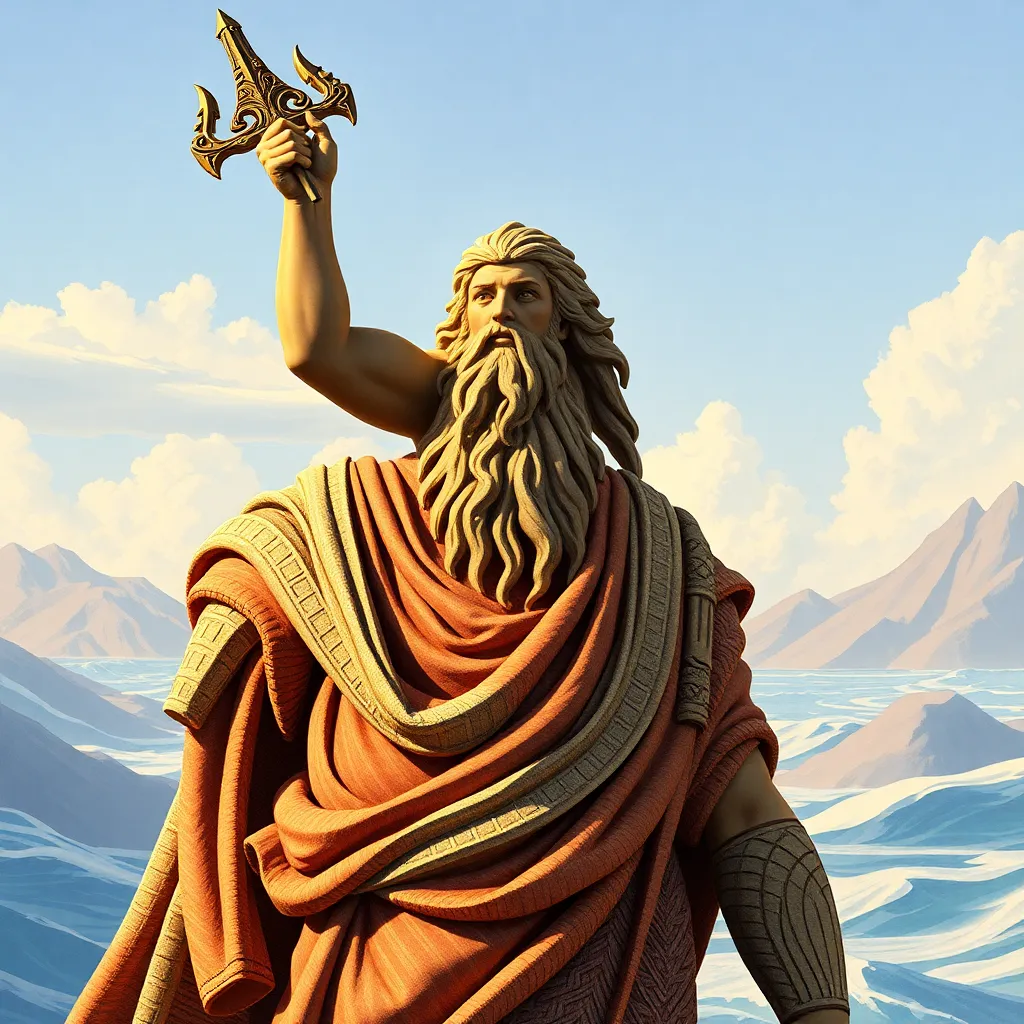The Role of the Hero in Ancient Greek Culture: Odysseus as a Model
Introduction
In ancient Greek culture, the concept of heroism was deeply intertwined with ideals of courage, honor, and personal excellence. Heroes were not merely figures of strength; they embodied the attributes that society revered and aspired to. Among these legendary figures, Odysseus stands out as a quintessential Greek hero, whose adventures and character reflect the complexities of heroism in a world rife with challenges and moral dilemmas.
Defining the Heroic Ideal in Ancient Greece
Greek heroes were often characterized by a set of distinctive traits that set them apart from ordinary individuals. The key characteristics of these heroes included:
- Courage: Heroes faced fears and fought formidable enemies, often putting their lives at stake for the greater good.
- Intelligence: Wit and cunning were as prized as physical strength, allowing heroes to navigate complex situations.
- Honor: Maintaining one’s reputation and fulfilling obligations was paramount in a hero’s journey.
Central to the idea of heroism were the concepts of arete (excellence) and kleos (glory). Arete represented the pursuit of excellence in all endeavors, while kleos was the glory one achieved through heroic deeds, ensuring that their name would live on through stories and songs.
The Epic Journey of Odysseus
Odysseus’s adventures are chronicled in Homer’s epic poem, The Odyssey. His journey begins after the Trojan War, as he embarks on a long and perilous voyage home to Ithaca. The narrative is rich with encounters that test his resolve, including:
- The encounter with the Cyclops Polyphemus
- The temptations of the Sirens
- The trials posed by Poseidon, the god of the sea
The significance of Odysseus’s journey lies not only in its thrilling adventures but also in its reflection of personal growth and resilience. Each challenge he faces serves to shape his character, teaching lessons about perseverance, humility, and the importance of home.
Odysseus’s Intelligence and Cunning
What sets Odysseus apart from many other heroes is his reliance on intelligence and strategy rather than sheer brute strength. He exemplifies the idea that the mind can be a powerful weapon. Key moments in his journey highlight this aspect:
- His clever escape from the Cyclops by blinding him and cleverly introducing himself as “Nobody.”
- The construction of the Trojan Horse, a masterful ruse that led to the fall of Troy.
- His ability to outwit the Sirens by having his crew plug their ears with beeswax while he was tied to the mast of the ship.
These instances demonstrate that Odysseus’s triumphs often stem from his ability to think critically and creatively, showcasing a different dimension of heroism.
Moral Complexity of Odysseus
Despite his heroic deeds, Odysseus is not without flaws. His character is marked by several moral ambiguities, including:
- Hubris: At times, his pride leads him to make reckless decisions, particularly in his encounter with Polyphemus.
- Deception: He frequently resorts to lies and manipulation, raising questions about the ethics of his actions.
- Moral Ambiguity: His choices often blur the lines between right and wrong, challenging the notion of an unequivocal hero.
These flaws add depth to his character, making him relatable and human. They highlight the complexities of heroism, suggesting that even the greatest heroes can struggle with their moral compass.
Odysseus’s Relationships and Leadership
Odysseus’s interactions with various characters throughout his journey further illuminate his role as a hero. His relationships can be categorized as follows:
- Allies: His bond with his crew and loyal friend, Athena, showcases the importance of camaraderie and support.
- Enemies: His confrontations with gods and monsters reflect the hero’s struggle against overwhelming odds.
- Family: His enduring love for Penelope and son Telemachus drives his determination to return home, emphasizing the theme of loyalty.
Leadership emerges as a defining trait of Odysseus. He navigates the challenges of guiding his men, making decisions that impact their fates, and demonstrating the qualities of a true leader: resilience, sacrifice, and the ability to inspire loyalty.
Cultural Impact of Odysseus as a Hero
Odysseus’s legacy extends far beyond ancient Greece. His character has influenced countless literary works and storytelling traditions throughout history. Notable impacts include:
- His portrayal in later Greek tragedies and Roman literature, where themes of homecoming and identity are explored.
- Modern adaptations in film and literature that reinterpret his journey and character, such as James Joyce’s Ulysses.
- The application of Odyssean themes in contemporary discussions about heroism, resilience, and moral complexity.
Odysseus’s story continues to resonate, serving as a lens through which we examine our own definitions of heroism in an ever-changing world.
Conclusion
The enduring legacy of Odysseus as a model of heroism lies in his multifaceted character, embodying traits that remain relevant today. His intelligence, moral complexity, and capacity for growth illustrate that heroism is not a static ideal but a dynamic journey shaped by experience and reflection. As we navigate our own lives, the lessons gleaned from Odysseus’s adventures inspire us to embrace courage, seek wisdom, and strive for excellence in our quests for personal glory and fulfillment.




